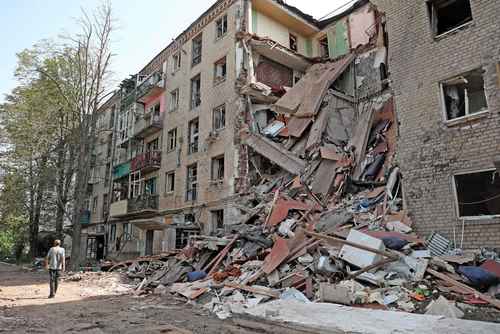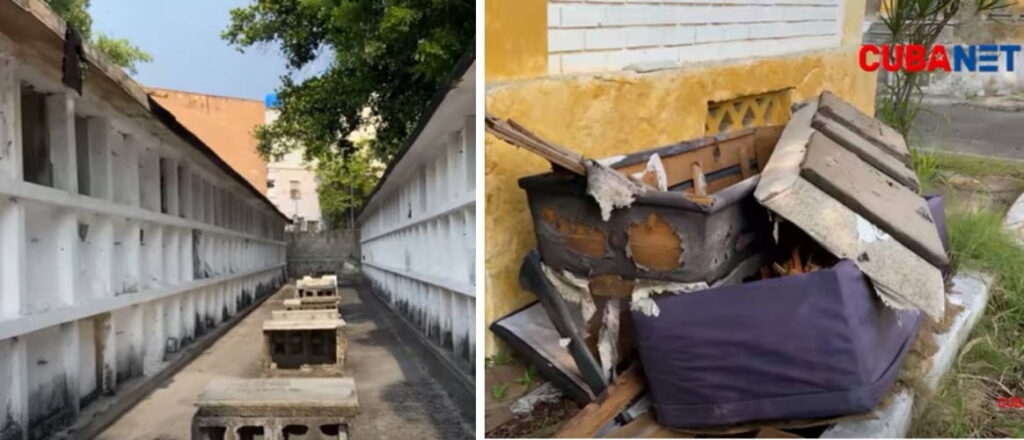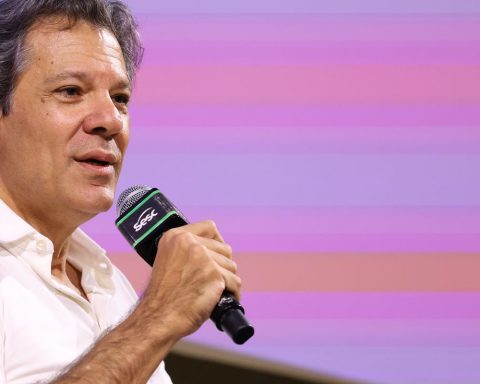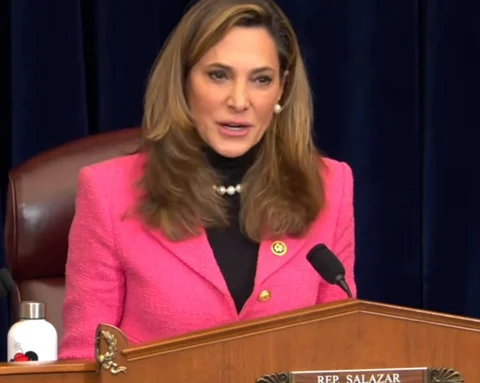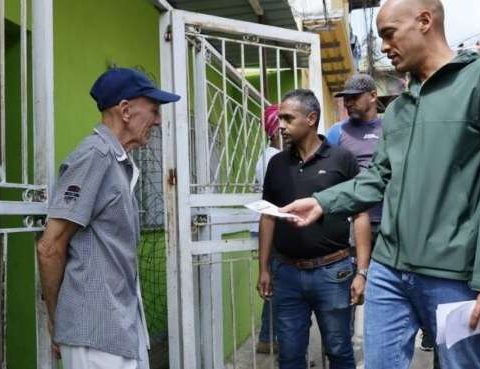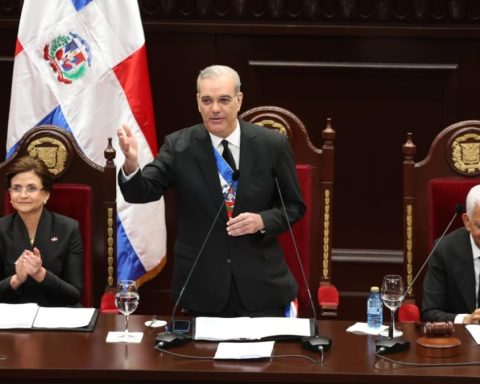Diplomatic agreement in Ukraine is still possible after six months of war: Chomsky
▲ A man walks past a severely damaged residential building after a recent airstrike in the city of Bakhmut, Donetsk region, Ukraine.Photo Afp
C.J. Polychroniou
Newspaper La Jornada
Monday, August 29, 2022, p. 17
The war in Ukraine continues unabated. There are no signs of a conclusion to this tragedy, although it is hard to imagine that the current situation will remain unchanged for long. The war exposed the dramatic weaknesses of the Russian military, while Ukrainian resistance surprised even military experts. It is more than obvious that the United States fights in a war by association
(or via proxy) in Ukraine, as Noam Chomsky underlines in this exclusive interview with truthoutwhich makes it very difficult for Russian military strategists to make significant breakthroughs.
CJ Polychroniou (CJP): It’s been six months since the Russian invasion of Ukraine and the end of the war is still not in sight. Putin’s strategy was very counterproductive, since he not only failed to take kyiv, but also revived the Western alliance with the accession of Finland and Sweden. Do you think Putin would have reconsidered the invasion had he known that this military adventure would be a protracted war?
Noam Chomsky (NC): Reading Putin’s mind has become a cottage industry of overconfident people who practice divination by reading meager tea leaves. I have some ideas, but these too have no basis.
My guess is that Russian intelligence, given its expectations of the US government, believed that conquering kyiv and installing a puppet government would be an easy task and not the debacle it became. I suppose that if Putin had had better information about Ukraine’s will and ability to resist, as well as the incompetence of the Russian army, his plans might have been different. Perhaps it would have been what many well-informed analysts expected and what now appears to be Russia’s plan B: try to establish tighter control over Crimea and take over the Donbas region.
With better intelligence, Putin may have had the wisdom to seriously respond to Macron’s efforts to reach a negotiated settlement that would prevent war and even strike up pacts between Europe and Russia. Instead, Putin launched a bloody war of aggression that is comparable to the US invasion of Iraq, and the one Hitler and Stalin perpetrated in Poland.
The Russians felt threatened by the expansion of NATO, which broke formal and unambiguous promises made 30 years ago to Gorbachev by virtually every high-ranking US diplomat who had ever had anything to do with Russia.
In a study of Washington Post On the background to the invasion, George Beebe and Anatoli Lieven observe that “the Biden administration’s efforts to prevent this war were very limited. As Russian Foreign Minister Sergei Lavrov said in the weeks before the invasion: for Russia the key to everything is to ensure that NATO does not expand to the East
. However, nowhere in the material reviewed by the post it is mentioned that the White House considered offering concrete commitments regarding Ukraine’s future accession to NATO.
In short: the provocations continued until the last minute. They did not limit themselves to undermining negotiations but promoted the project of integrating Ukraine into NATO’s military command and making the Slavic nation a member very soon. de facto of the alliance, as recorded in army publications.
The provocations were constant and conscious for many years despite the warnings, but they do not justify Putin resorting to an aggression that implies a supreme international crime
. Although this crime is explained, it has no justification.
As for Russia becoming a pariah state
I think some clarification needs to be made: yes, he is becoming a pariah for Europe and the Anglosphere to such a degree that it has surprised the most experienced combatants of the cold War.
CJP: Russia claims that the United States is directly involved in the war with Ukraine. America is in a war by association
?
NC: That the United States is strong and proudly involved in the war is not the issue. Being in a war by association (or by proxy) is widely accepted in European and Anglosphere circles, and it is not hard to see why. The official policy of Washington, open and public, is that the war must continue until Russia is so severely weakened that she can no longer carry out any aggression.
CJP: As expected, the invasion has led to a protracted propaganda war between those involved. You recently said that by banning RT and other Russian media, the US has less access to its adversary’s official position. Can you talk more about this?
NC: On the Russian side, the war propaganda is extreme. In the United States, although there are no official bans, it is difficult to deny Graham Fuller’s observations. Literal censorship is rare in the United States and other Western societies, but as George Orwell wrote in 1945 in his (unpublished) foreword to Rebellion in the farmthe sinister fact
of free societies is that censorship is largely voluntary. Unpopular ideas can be silenced, and undesirable facts can be kept in the dark, without the need for an official ban.
. These are ways of controlling thought that are more effective than force.
In the United States, such means of silencing unpopular ideas and obscuring unconvenient facts has become an art, as might be expected in an unusually free society.
Outright banning of adversary publications is not only illegitimate but harmful, so it was important for Americans to be aware that prior to the invasion the Russian Foreign Ministry emphasized that the key to everything is to ensure that NATO does not expand to the East
in Ukraine, a firm limit that was respected for decades.
It would have been helpful if Americans, at least those interested in putting an end to these horrors, had access to these words just by turning on the television, instead of being plunged into an apocalyptic battle conjured to cage the runaway bear that is going to devour us. to all. A battle conjured from reading tea leaves.
CJP: Peace negotiations between Russia and Ukraine have been stalled since early spring. Do you see the end of the conflict in the near future?
NC: It is not entirely clear whether the negotiations have stalled. Very little is reported, but it seems possible that talks to end the war are still on the table, as a meeting between Ukraine, Turkey and the UN was reported, which could indicate the possibility that kyiv is open to the idea of discussing with Moscow. In the face of Russian advances on its territory, Ukraine may have softened its opposition to considering a diplomatic solution to the war. If so, it is up to Putin to show whether his ardent willingness to negotiate
it is a lie, or something substantial.
What happens is hidden. Bring to mind the afghan trap
to which we refer when remembering when the United States fought by association with Russia to the last afghan
. Are we, perhaps, facing something similar?
Russia certainly wants peace on its own terms. A negotiated settlement is one in which the parties agree to give up some of their demands. There is only one way to find out if Russia really wants negotiations: let’s try it. Nothing is lost.
I think it is fair to conclude that the fog of war has not lifted. We know what the US position is, and it expressed it last April, when the NATO powers held a conference at Ramstein Air Base: Ukraine clearly believes that it can win, as do those of us who have gathered here
. Whether they thought so then, or still do, I don’t know and there’s no way to find out.
For what it’s worth, I personally respect Jeremy Corbyn’s words published a day after the Ramstein conference opened and which contributed to his being practically expelled from the British Labor Party: There must be an immediate ceasefire in Ukraine followed by a withdrawal of Russian troops and an agreement between Moscow and kyiv on future security pacts. All wars end with negotiations of some kind, so why not do it now?
Originally posted on truthout
Translation: Gabriela Fonseca
Full version in La Jornada on-line: bit.ly/3QZJo9Q
